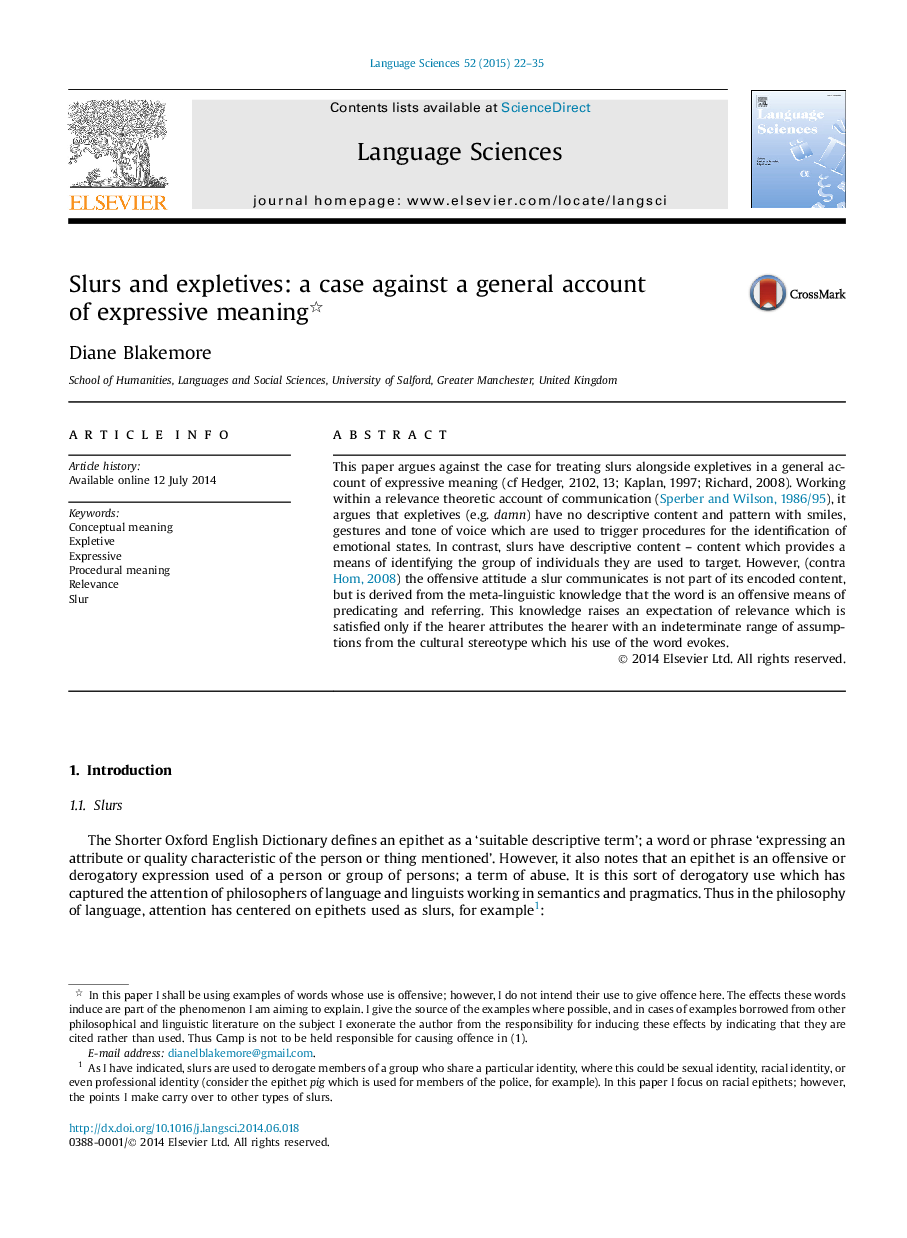| Article ID | Journal | Published Year | Pages | File Type |
|---|---|---|---|---|
| 1103011 | Language Sciences | 2015 | 14 Pages |
•Explains why slurs are not like expletives.•Explains why expletives are like expressive gestures.•Explains how slurs contribute to reference and predication.•Provides a pragmatic account of the offensive effects of slurs.•Highlights role of metalinguistic knowledge in the effects created by slurs.
This paper argues against the case for treating slurs alongside expletives in a general account of expressive meaning (cf Hedger, 2102, 13; Kaplan, 1997; Richard, 2008). Working within a relevance theoretic account of communication (Sperber and Wilson, 1986/95), it argues that expletives (e.g. damn) have no descriptive content and pattern with smiles, gestures and tone of voice which are used to trigger procedures for the identification of emotional states. In contrast, slurs have descriptive content – content which provides a means of identifying the group of individuals they are used to target. However, (contra Hom, 2008) the offensive attitude a slur communicates is not part of its encoded content, but is derived from the meta-linguistic knowledge that the word is an offensive means of predicating and referring. This knowledge raises an expectation of relevance which is satisfied only if the hearer attributes the hearer with an indeterminate range of assumptions from the cultural stereotype which his use of the word evokes.
